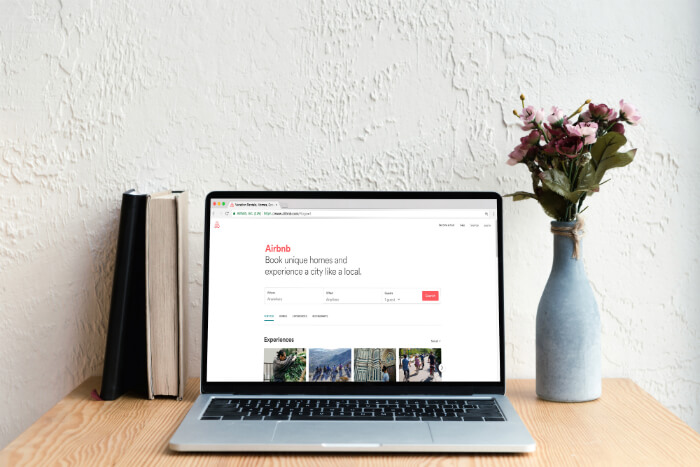5 Short-Term Rental Strategies You Need to Know to Survive [Guide + Video]
![5 Short-Term Rental Strategies You Need to Know to Survive [Guide + Video]](/content/images/size/w1200/wordpress/2019/10/short-term-rental-market.png)
Year after year, the vacation rental industry is becoming more saturated with countless listings being created by the day. Airbnb alone has more than six million listings in over 190 countries! Then, there’s Booking.com that has almost 30 million listings of which close to six million are vacation rental properties.
When you consider these figures, it doesn’t come as a surprise that the majority of vacation rental companies have experienced a drop in their occupancy rates. Consequently, they’re finding it more challenging to keep up with the fierce competition.
We’ve realized that the majority of vacation rental owners are feeling overwhelmed by the short-term rental market size and increasing competition. Therefore, our co-founder and CTO, Igor Kostin, decided to share strategies to surviving the STR market at the 2019 VRMA International Conference. If you’ve missed his speech, here are his 5 strategies that anyone can start to implement today.
[lwptoc depth=”1″ hierarchical=”1″ numeration=”none” numerationSuffix=”dot” title=”” toggle=”0″ labelShow=”show” smoothScroll=”1″ smoothScrollOffset=”30″ width=”600px” titleFontSize=”120%” titleFontWeight=”extrabold” itemsFontSize=”120%” colorScheme=”inherit”]
1. Use technology and artificial intelligence to increase efficiency
There’s no denying that technology has improved many aspects of our daily lives. As a matter of fact, without the Internet, you would not be able to rent out short-term rental properties to strangers from all over the world in the first place.
Just like the short-term rental market has already taken advantage of the technological strides, your business should too. To put it in another way, if you’re still thinking about whether to try vacation rental management software, you’re only falling even further behind. Your competitors are already using these tools and, therefore, they already have an advantage.
So, what exactly can be automated and how can it help you?
Communication with guests
If you don’t know where to begin, start with your guest communication. The average traveler considers 8 properties and actually inquires about up to 5 before making a booking. That’s why you need to reply faster than your competition.
In fact, 63% of short-term rental owners reply to travelers within 60 minutes. However, it might still be too long. What if you could reply faster, preferably within just a couple of minutes?
That’s where automated communication comes to help. With automated guest communication, you can set up triggers and create templates for different occasions (like upon inquiry, with checkout, etc.) allowing you to reply instantly.
Reviews
You can also automate reviews and grow the number substantially. Let’s face it, sadly 80% of guests are reluctant to leave reviews. The trick is to provide them with your feedback first which will encourage them to leave a review for you in return.
Again, automation enables you to create review templates and publish personalized feedback upon your guests’ checkout. By growing the number of your reviews, you’ll be growing the number of your bookings!
Cleaning and team management
Automation can also help to improve your cleaning and team management. With the right automation tool, this process will become less stressful. For example, you can use software to assign a task to a certain crew member and he/she will receive your request via a text message and/or email. The cleaner can then report with one click when the task has been completed.
Wondering how to do all of the above at once? You can easily set your communication with guests, reviews and cleaning management on autopilot with all-in-one software such as iGMS.
2. Cater to millennials

Have you thought about who your actual target audience is? What are their preferences and whims? How old are they? Nowadays, millennials are the major driving force in the short-term rental market. Many hosts and managers have reported that the majority of their guests are between 24 and 35.
The interesting thing about millennials is that they’re ready to spend $5,000 or more on vacation. In fact, they would rather spend a fortune on a new journey (they travel up to 35 days a year which is a lot more than other age groups) than buying a new car.
However, at the same time, they’re looking for affordability and expect to get many services at reasonable prices. Their customer service demands are high and they anticipate to get immediate support. So, if you’re not able to answer their inquiry within a minute, they’ll try to search for another, much faster host. And, in the supersaturated short-term rental market, they’ll definitely find one.
Another thing to keep in mind is that millennials crave unique, engaging experiences and come to your place to explore the area. So, don’t send them the same brochure that you used a couple of years ago. Instead, try to impress them with an unusual culinary experience or craft beer tasting. Or, how about giving them a voucher issued by the local sharing company so that they can rent a bicycle or car?
3. Create a “wow” effect
Creating a “wow” effect can be a very effective secret weapon in the short-term rental market. After all, who doesn’t like a pleasant surprise, even if it’s only something small?
Everyone wants to be impressed. So, make sure that you go the extra mile and wow your guests by adding smart amenities that are ideal for vacation rental properties. It will surely work since millennials were practically born with smartphones in their hands and they are totally into new technologies.
The good news is that smart amenities in your vacation rental don’t need to be too expensive. What’s more, an investment of $60 can increase your revenue by up to 20%! For less than $20, you can wow your guests with color-changing LED bulbs or a door and window sensor. If you’re looking to spend a bit more, how about an affordable home assistant like an Echo Dot (a voice-controlled smart speaker with Alexa)?
The list of ideas is endless!
4. Stand out on the major short-term rental platforms

It’s not only the short-term rental market that is becoming saturated. The competition is getting fierce in all business sectors! For example, smaller e-commerce websites are closing. As Amazon has a share of close to 40% of all US e-commerce sales, they’re simply unable to compete.
As a result, vacation rental managers are complaining that it’s getting harder to attract direct bookings and the sharing economy is playing a big part. Nowadays more than 90% of reservations take place on vacation rental platforms like Airbnb, HomeAway, Booking.com, etc.
Here’s the thing: people trust big platforms more than individual websites. Moreover, with Google’s algorithms that are constantly changing and advertising costs increasing, your vacation rental site will most likely get lost among thousands of similar vacation rental listings. In the current short-term rental market, individual vacation rental sites don’t even stand a chance to beat giants such as Airbnb and Booking.com, with the latter spending $2 billion on advertising in 2018 alone.
Airbnb, on the other hand, has proven to be the leader in the short-term rental market with a market share of as much as 85% in some North American cities. What’s more, Airbnb listings generated more than 400 million guest arrivals by the end of 2018.
Thus, working on your search ranking on Airbnb and other vacation rental platforms is way more effective. By implementing some of these strategies, you can increase the chances of your Airbnb listing(s) appearing on Airbnb’s first page:
- Use an automation tool (such as iGMS) to grow the number of positive reviews. Once you have enough positive reviews, Airbnb will push your listings to the top of the search results.
- Strive to maintain a quick response rate. Ideally, you should try to respond within a minute using a native messaging system (and not email).
- Change your listing’s title frequently. If you want your listing to stand out, try to change its title on a weekly basis. It may seem obvious, but people still click on the titles containing words such as “Promo”, “Free”, and “Special Offer”.
- Use a tool designed specifically for the short-term rental market to change your pricing slightly every 15 minutes.
- Make it your goal to become a Superhost. You can also try to list your property on Airbnb Plus or Airbnb Select to increase your listing’s exposure.
5. Use marketing to leave your competitors behind
As much as 94% of vacation rental property owners confess that they feel they could be doing more to promote their vacation rental properties. While vacation rental platforms remain extremely powerful, it is important to go beyond these platforms to generate even more interest in your property listings.
However, where can you find your potential guests? You need to concentrate your effort and money on those platforms where your target audience is the most active. When you take into account that 52% of travelers seek out recommendations on social media when planning a trip and 42% of posts on Facebook are about travel stories, the answer is plain to see. So, start by concentrating on social media!
Facebook remains the social media platform that’s currently the most widely used. It boasts 2.4 billion monthly active users, followed by YouTube with 1.9 million active users, and Instagram with 1 billion active monthly users. To help you succeed on Facebook, here are 3 top tips:
- Manage your Facebook reviews tab as people tend to trust these reviews. Plus, this is your chance to show to your potential guests that you are one of the most professional hosts in the short-term rental market.
- Use contests and surveys to create a buzz of excitement around your page.
- Share local content such as local events, top tourist spots, and experiences or something relating to your area’s short-term rental market to generate extra exposure.
YouTube
If you also want to use YouTube to market your short-term rentals, you will need to create your own channel. Then, the next step is to find enough high-quality content that your target audience will resonate with. You can for example:
- Upload videos about the top 5 places to visit or the top 7 local experiences to try in your area.
- Create “how-to” videos that are filled with useful tips for travelers.
- Showcase your property (at the end of the day, the purpose of your channel is to tell the world about your unique property).

Instagram can also be your best friend if you want to reach millennials. In fact, about a third of millennials in the United States use Instagram on a daily basis. In addition to regular posting and creating stories, try to collaborate with influencers who are familiar with the short-term rental market. Influencer marketing can deliver a return on investment that is 11 times higher than traditional forms of digital marketing. The good news is that micro-influencers who have 1,000 – 10,000 followers deliver the best results and their ads are also the cheapest.
Conclusion
The reality is that in the short-term rental industry there’s no room for mediocrity. At the end of the day, if you want to succeed in the short-term rental market, you’ll have to find ways to increase your bookings, while at the same time creating a first-class company.
Therefore, you have nothing to do, but to embrace innovation. Start to implement new techniques and technologies as they are shaping the future of the vacation rental industry and the short-term rental market. And, the future is here now!
If you want to beat the oversaturated short-term rental market, iGMS is the smart solution just for you. It is not a traditional property management system, but instead uses innovative approaches that are inspired by new technologies and AI.
If you think of iGMS as a car, it’d be Tesla. It is an innovative, intelligent and intuitive system that can help grow your business and help it to stand out in the short-term rental market. So, how about setting your vacation rental business on autopilot?





![Your Monthly iGMS Roundup [February 2020]](/content/images/size/w600/wordpress/2020/02/igms-roundup-feb-2020-cover.png)

